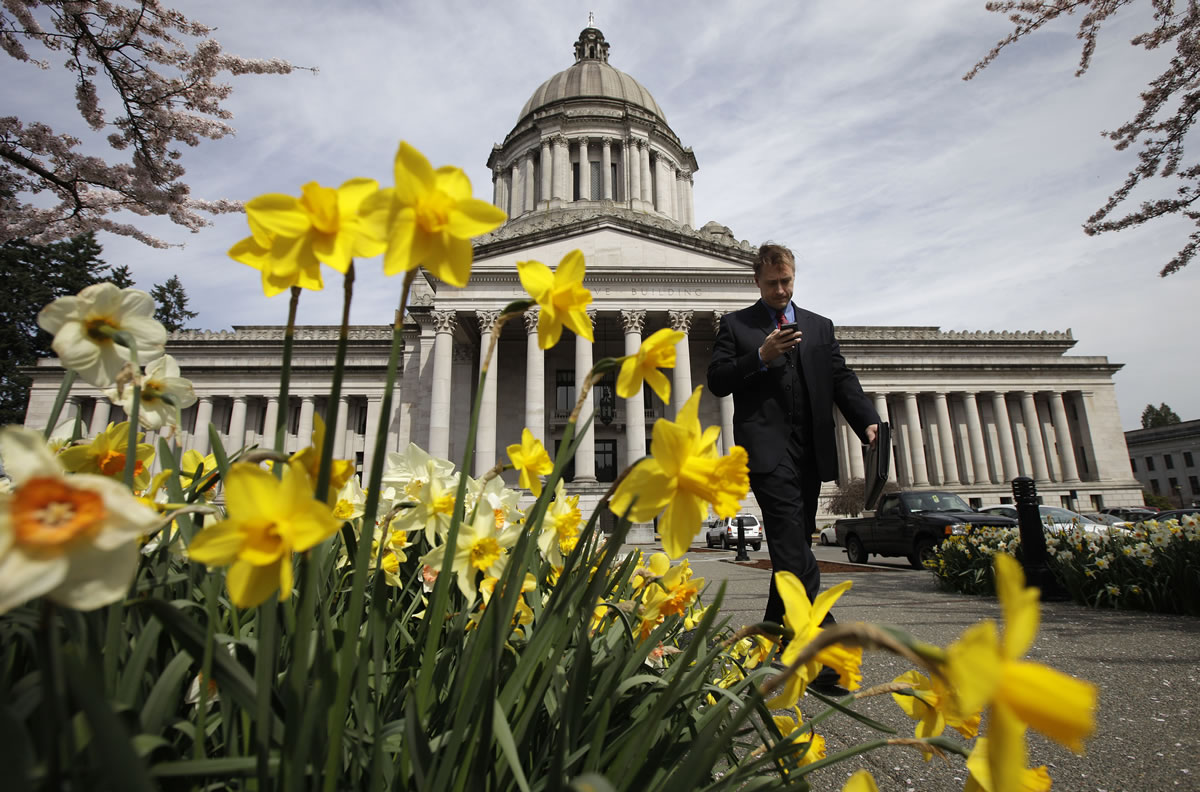OLYMPIA — Washington lawmakers return to the Capitol on Monday to finish their work on a two-year state budget, but with no deal reached during their two-week interim, the special legislative session could take its full allotted 30 days, if not longer.
Budget writers in the House and Senate met a few times during the time off, and staffers met more frequently. But without firm agreement on what a compromise budget would look like, what exactly lawmakers will do immediately upon their return is still unclear.
“We’re feeling our way through the initial stages here,” said Sen. Jim Hargrove, the top budget writer for Senate Democrats. “It’s kind of like a big steam engine getting going out of the station. There’s a whole lot of energy and steam, and it doesn’t move very fast to begin with. But I think it will start to pick up.”
Another budget meeting was scheduled for Monday, on what was expected to be a very low-key first day of the special session.
No floor votes or committee hearings had been scheduled yet.
Gov. Jay Inslee has said that even while budget writers keep working toward a deal, he expects lawmakers to address policy issues he hopes to see taken up during the overtime session, including a measure to strengthen the state’s impaired driving laws in the wake of recent fatal accidents, an issue that has bipartisan support and which Inslee and other lawmakers have said they are close to a deal on.
Inslee said he couldn’t predict whether lawmakers would need the full 30 days of a special session to come to agreement on, and pass, a budget.
“Obviously, we’d like people to put the pedal to the metal,” he said.
Lawmakers need to address a projected budget deficit of more than $1.2 billion for the next two-year budget, covering state activity until mid-2015, not counting additional money needed for a court-ordered requirement that they increase funding to basic education. The House and Senate have taken different approaches to balance state spending and increase funding for education, with the biggest difference centered around whether to raise revenue from extending taxes or eliminating tax breaks.
The Senate is controlled by a coalition of 23 Republicans and two Democrats, and passed a budget during the regular session that balances spending without new taxes, relying on cuts to social programs and fund transfers. The House’s budget would increase tax revenue by roughly $1 billion over the next two years, including a permanent extension of business taxes to raise more than half a billion dollars. The plan would also repeal tax breaks for travel agents, bottled water and fuel.
Negotiators haven’t reported specifically on what progress has been made, but have said they’ll continue talking in the coming weeks.
“While we have difficult and meaningful decisions to make, and I believe we’re on the right track, there is a great deal of work to be done. And the only way to make progress is to continue having these conversations,” Senate Republican budget writer Andy Hill said in a written statement.



